Here you will find news on CLIENT II, current project developments as well as reports on sustainable innovations from the seven subject areas and all regions. You can narrow the selection by choosing the subject or region you are interested in from the menu. If you would like to be updated regularly, you can subscribe to the CLIENT II newsletter.
Did you miss something? You can find the newsletter archive via the right button.
News Article List
- Image
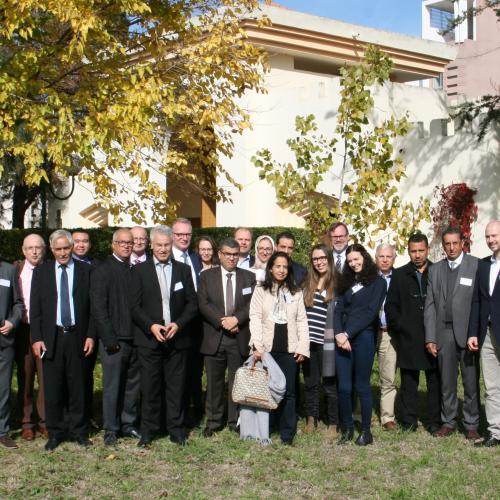 02.12.2019MoroccoLand managementOn 27 November, German and Moroccan partners launched the I-WALAMAR project (Sustainable Technologies and Services for Water and Land Management in Morocco) at the University of Moulay Ismail in Meknès, Morocco.
02.12.2019MoroccoLand managementOn 27 November, German and Moroccan partners launched the I-WALAMAR project (Sustainable Technologies and Services for Water and Land Management in Morocco) at the University of Moulay Ismail in Meknès, Morocco. - Image
 01.12.2019BeninAdaptation to climate changeLast year involved plenty of highlights for the CLIMAFRI project. In June 2019, the project team held its kick-off event in Benin and Togo to mark the start of the three-year endeavour to co-develop and co-implement adaptation strategies for sustainable management of flood risk and natural resources in the transboundary Lower Mono River catchment. Since then, they have organised a series of workshops, studied one of the most severe floods in the region in recent years, and presented their work at COP25 in Madrid.
01.12.2019BeninAdaptation to climate changeLast year involved plenty of highlights for the CLIMAFRI project. In June 2019, the project team held its kick-off event in Benin and Togo to mark the start of the three-year endeavour to co-develop and co-implement adaptation strategies for sustainable management of flood risk and natural resources in the transboundary Lower Mono River catchment. Since then, they have organised a series of workshops, studied one of the most severe floods in the region in recent years, and presented their work at COP25 in Madrid. - Image30.11.2019Adaptation to climate changeIn the beginning of November 2019 a delegation of twelve experts from the different German project partners of the CLIENT II project RAIN travelled to Ghana to meet the Ghanaian partners in person, to develop a joint process and to decide on where and how to start the practical experiments.
- Image
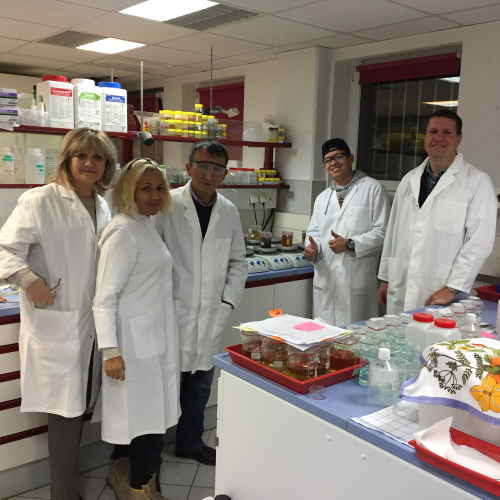 15.11.2019Kyrgyzstan, UzbekistanNatural hazardsThe accredited radionuclide laboratory IAF-Radioökologie GmbH in Radeberg near Dresden, which coordinates the CLIENT II project TRANSPOND, organised a joint placement for Kyrgyz and Uzbek radiochemists from 11 to 15 November 2019.
15.11.2019Kyrgyzstan, UzbekistanNatural hazardsThe accredited radionuclide laboratory IAF-Radioökologie GmbH in Radeberg near Dresden, which coordinates the CLIENT II project TRANSPOND, organised a joint placement for Kyrgyz and Uzbek radiochemists from 11 to 15 November 2019. - 14.11.2019BrazilResource efficiency and circular economyMembers of the German-Brazilian consortium for the REGINA project met for a joint workshop in Brazil from 12 - 14 November 2019.
- Image
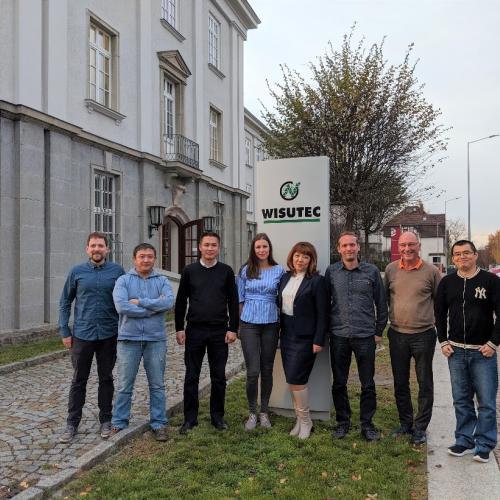 Partners familiarise themselves with the TRANSPOND project’s transnational environmental information system13.11.2019Uzbekistan, KyrgyzstanNatural hazardsWISUTEC Umwelttechnik GmbH invited project partners from Kyrgyzstan and Uzbekistan to Germany for a workshop about the latest progress in developing the transnational environmental information system within the framework of the TRANSPOND project.
Partners familiarise themselves with the TRANSPOND project’s transnational environmental information system13.11.2019Uzbekistan, KyrgyzstanNatural hazardsWISUTEC Umwelttechnik GmbH invited project partners from Kyrgyzstan and Uzbekistan to Germany for a workshop about the latest progress in developing the transnational environmental information system within the framework of the TRANSPOND project. - Image
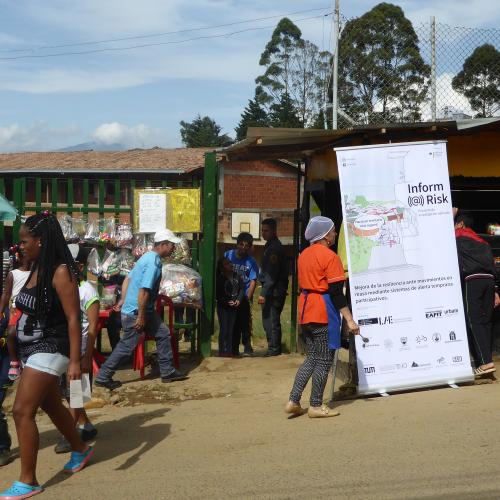 08.11.2019ColombiaNatural hazardsFrom 4th to 8th of November, almost 30 German and Colombian project partners met to present initial research results and to organise joint workshops with all participants on site.
08.11.2019ColombiaNatural hazardsFrom 4th to 8th of November, almost 30 German and Colombian project partners met to present initial research results and to organise joint workshops with all participants on site.
- Image
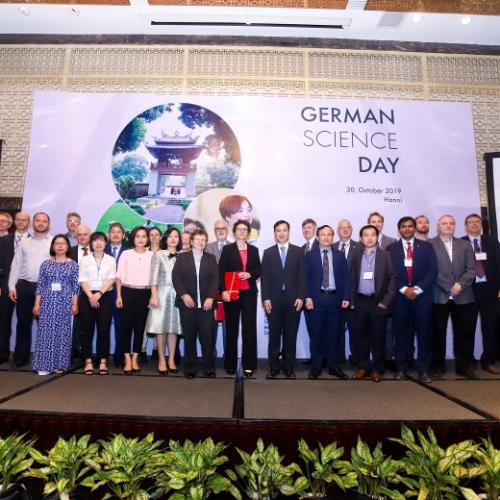 05.11.2019VietnamStrong German-Vietnamese cooperation on sustainability research: on 30 October 2019, the third German-Vietnamese Science Day took place in Hanoi. Around 200 participants from the academic, private, and public sectors and intermediary organizations presented a wide variety of bilateral projects on sustainability research.
05.11.2019VietnamStrong German-Vietnamese cooperation on sustainability research: on 30 October 2019, the third German-Vietnamese Science Day took place in Hanoi. Around 200 participants from the academic, private, and public sectors and intermediary organizations presented a wide variety of bilateral projects on sustainability research. - Image
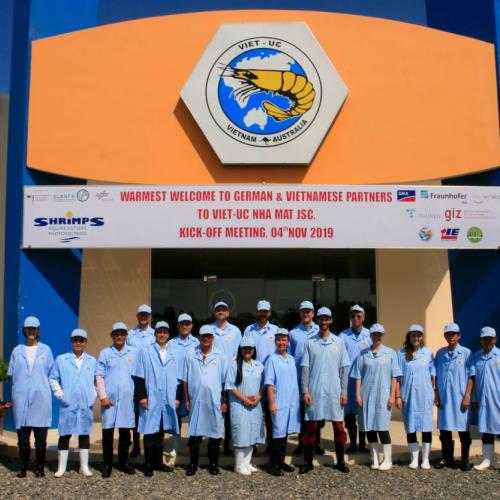 04.11.2019VietnamLand managementOn 4 and 5 November, German and Vietnamese partners, along with the local BMBF project office in Vietnam, project-executing agency DLR and local stakeholders, launched the project "SHRIMPS" ("Solar-Aquaculture Habitats as Resource-Efficient and Integrated Multilayer Production Systems") in the Mekong Delta.
04.11.2019VietnamLand managementOn 4 and 5 November, German and Vietnamese partners, along with the local BMBF project office in Vietnam, project-executing agency DLR and local stakeholders, launched the project "SHRIMPS" ("Solar-Aquaculture Habitats as Resource-Efficient and Integrated Multilayer Production Systems") in the Mekong Delta. - Image
 28.10.2019VietnamResource efficiency and circular economyThe CLIENT II project SAND! officially started in October 2019.
28.10.2019VietnamResource efficiency and circular economyThe CLIENT II project SAND! officially started in October 2019.
